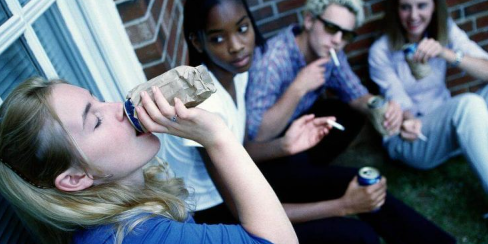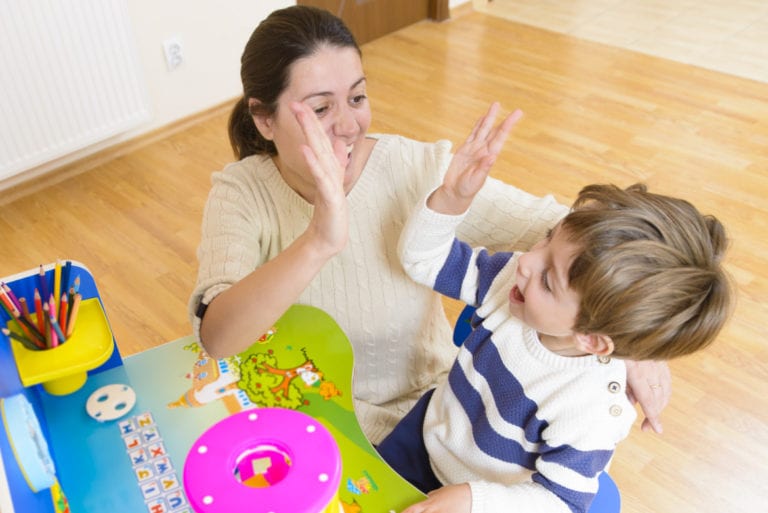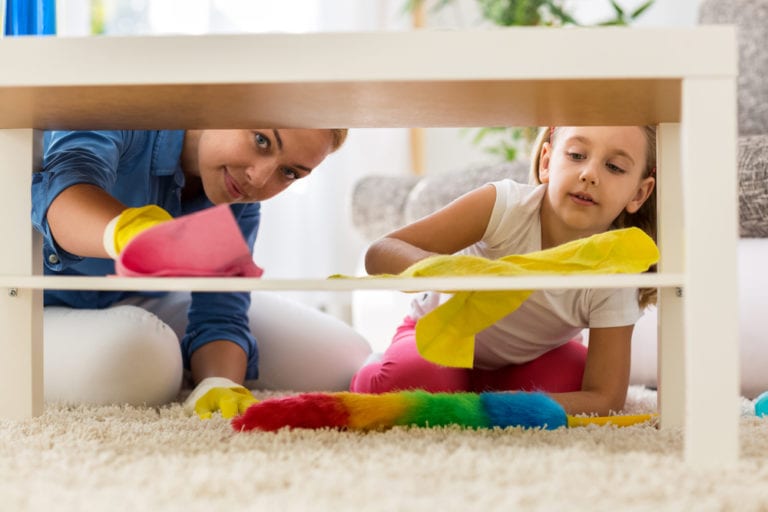Regaining Balance: Dealing with an Out of Control Teenager in Your Family
Disclosure: This post may contain affiliate links, meaning I may get a small commission if you decide to make a purchase through my links, at no cost to you.

Have you ever felt like your out of control teenager is a ship being tossed about in stormy seas, with you standing helpless on the shore? That feeling when their once cherubic smiles morph into angry snarls; where every conversation becomes an argument. Where did that sweet child go?
The truth is, that adolescence can feel like a perfect storm. Hormonal changes surge through them, reshaping not just bodies but brains too.
You’re not the only one feeling adrift in this chaotic time. Many parents are navigating these turbulent waters with teens whose behavior goes beyond typical teenage rebellion to something more alarming.
According to the National Conference of State Legislatures (NCSL), every year, between 1.6 and 2.8 million teens run away from home in the United States. The reasons cited most often include family conflict, abuse, and neglect.
As difficult as it may be, most families can navigate the challenges of those teen years with a little guidance and direction.
This post sails right into this tempestuous territory and will guide us to calmer shores as we explore adolescent brain development and its impact on teen behaviors – from normal mood swings to warning signs indicating deeper troubles needing professional help.
See Also:
Affirmations for Teens Boostin Confidence and Self Love
100 Quotes About Parenting Teens
Table of Contents:
- Understanding the Adolescent Brain and Teen Behavior
- Recognizing Out-of-Control Teen Behavior
- When to Seek Help for Your Troubled Teenager
- Treatment Options for Out-of-Control Teenagers
- Strategies to Regain Control Over Your Teen’s Behavior
- Addressing Specific Issues in Out-of-Control Teens
- Creating a Supportive Environment for Your Troubled Teenager
- Conclusion
Understanding the Adolescent Brain and the Out of Control Teenager Brain
The teenage years can be likened to a wild ride of feelings, akin to an extremely energized tot on a sugar rush.

This behavior is not due to hormones alone but also because of brain development during adolescence. Teenage brain development, specifically in the frontal cortex, plays a significant role in decision-making and emotional management.
The Role of the Frontal Cortex in Out of Control Teenager Behavior
A little-known fact: The human brain isn’t fully formed until around our mid-20s. It’s as if nature decided to give us one more thing to worry about along with pimples and peer pressure.
This active developing process includes restructuring the frontal cortex – that’s your teen’s “control center” for managing emotions and making decisions ScienceDaily . Now imagine that control center being under construction while your teenager needs it most.
Hormonal Changes in the Out of Control Teenager
Puberty can be likened to an internal fireworks display, complete with bright lights (zits), loud noises (mood swings), and occasionally things going off course. These hormonal changes add another layer of complexity to their already intense world.

Heightened emotions? Check. Rapid mood swings from ecstatic joy at finding extra fries at the bottom of their takeaway bag, to plummeting into despair when they realize they’re out-of-control teenagers experiencing behavioral problems or substance abuse issues?
- Mood Swings: Moodiness might seem like typical teenage behavior but rapid shifts could indicate something deeper than just adolescent angst.
- Impulsive Behaviors: While impulsivity may be a normal part of teen behavior, consistent reckless actions can signal an out-of-control teenager.
- Emotional Intensity: Teens often feel things more deeply than adults. However, extreme emotional reactions may point to mental health issues.
Are you scratching your head, thinking your kid’s acting weird because of brain development? Like they’ve been swapped with an alien?
Dealing with teenage behavior can seem like a rollercoaster ride, right? It’s not just about raging hormones. There’s more going on upstairs – their brain is still growing. The frontal cortex, which controls emotions, isn’t fully developed yet in teenagers. Mix that with the hormonal shifts of puberty and you’ve got yourself an explosive combo for high-intensity feelings, mood flips, and spontaneous decisions. That’s why your teen might sometimes feel like they’re from another planet.
Recognizing Out of Control Teenager Behavior
We all know that being a teenager is like riding a rollercoaster of emotions. One moment they’re up, the next they’re down. But when does typical teenage moodiness cross over into out-of-control teen behavior?

If you’ve been wondering whether your child’s actions are just normal teen rebellion or something more serious, you’re not alone. So let’s sift through this mystery together.
Distinguishing Between Typical and Atypical Out of Control Teenager Behavior
Typical vs. atypical teen behavior, it’s an age-old question asked by countless parents – kind of like ‘to be or not to be’, but with less Shakespearean drama.
A bit of rebelliousness is expected during the teenage years. However, warning signs such as rapid mood swings or verbal abuse may indicate we’ve left Kansas and are dealing with out-of-control teenager territory.
In fact, some teenagers show behaviors so intense that their version of “acting out” might involve staying out all night without permission or even getting involved in legal troubles (and no folks; Monopoly jail time doesn’t count.). If this sounds familiar – hold onto your hats because it looks like we’ve got an actual tornado on our hands.
- Rapid mood swings: Think weather changes in Texas—sunny one minute and stormy the next.
- Habitual drug use: More than experimenting—it’s using substances regularly to cope.
- Violence: Not sibling squabbles—we mean real physical aggression towards others.
- Staying out all night: Disappearing for long periods can signal big trouble brewing.
- Legal troubles: We don’t mean downloading music illegally… Serious stuff like stealing or violence.
These are just a few red flags to watch out for. If you observe any of these activities in your adolescent, it could be an indication that professional help should be sought.
Don’t forget. Parenting isn’t about raising a flawless kid. It’s about recognizing when they require assistance and determining how to get them back on the right path.
Recognizing out-of-control teen behavior isn’t always easy. Regular mood swings, habitual drug use, violent tendencies, staying out all night or getting into legal trouble can be red flags of a teenager veering off course. Remember: it’s not about raising a perfect child but spotting when they need help and guiding them back on track.
When to Seek Help for Your Troubled Teenager
You might feel like you’re stuck in a bad reality TV show with your teenager’s dramatic mood swings and rebellious acts. But when do these antics shift from typical teenage behavior into the red flag zone? Let’s dive deeper.

If your teen exhibits intense behaviors that go beyond a ‘phase’, it may indicate underlying mental health issues or substance abuse problems. Now, don’t panic. It doesn’t mean they’re destined for life as an out-of-control adult. Remember, their brain is still actively developing.
What are some indicators that a teen might be headed down the wrong path?
- Rapid shifts in mood that seem more severe than standard teenage moodiness
- Habitual use of drugs or alcohol indicating possible substance abuse
- Frequent run-ins with law enforcement could suggest a lack of control over actions
Your role here isn’t just about setting rules but also being a good listener and role model so they can express themselves safely without fear of harsh judgment.
The Power (and Limitations) Of Parental Authority
We get it – dealing with an out-of-control teen can make anyone feel exhausted. However, no matter how drained you are, remember this golden rule: You cannot fix everything by yourself. Even the best parents need help sometimes.
Taking on too much stress won’t only wear you down but will also fail to provide the necessary support your troubled teenager needs. So if things have spiraled past what seems manageable at home – seeking professional help, such as family therapy or residential treatment centers designed specifically for troubled teens, should be considered seriously.
Helping Your Teen Feel Heard
The journey to help your teen regain control isn’t just about correcting their wrong behaviors. It’s equally important to make them feel heard and understood. Regular conversations can do wonders in helping teenagers manage emotions.

If they’re acting out, remember it could be a cry for help rather than mere defiance. Stay patient, keep communication open, and let them know you’re there no matter what.
See Also:
How to Get Teens to Talk About Their Feelings
10 Best Ways to Connect With Your Teen
Wrapping it up:
Recognizing signs of trouble in your teen, like intense mood swings or substance abuse, is key. But remember: you can’t fix everything alone. If things get too tough, it’s time to consider professional help such as family therapy or treatment centers. Also crucial? Regular chats with your teen to make them feel heard and understood.
Treatment Options for Out-of-Control Teenagers
Teen years can be a whirlwind of intense emotions, mood swings, and, yes – the occasional out-of-control behavior. But when your teen’s antics start to resemble a bad reality TV show more than normal adolescent rebellion, it may be time to consider professional help.
You’re not alone in this struggle; many parents understand the harsh reality of dealing with troubled teens. So let’s explore some treatment options that could give you back control and bring peace into your home again.
Residential Treatment Centers: A Home Away from Chaos
The term ‘residential treatment center’ might sound intimidating, but think of it as an intensive summer camp designed specifically for out-of-control teenagers. These centers provide structured environments where teens learn to manage their behaviors under the guidance of mental health professionals.
A key advantage is round-the-clock supervision which ensures safety while addressing behavioral problems and substance abuse issues head-on. Turnbridge – Mental Health and Substance Abuse Treatment Center for Adolescents and Young Adults, a reputable residential center for adolescents struggling with mental health or substance abuse issues, is worth checking out if you need somewhere to start looking.
Family Therapy: It Takes a Village (Or at Least One Very Patient Therapist)
We all know parenting doesn’t come with an instruction manual – especially when handling teenage behavior feels like trying to assemble IKEA furniture without one. This is where family therapy comes in handy.

A skilled therapist will guide your family through discussions about difficult topics such as verbal abuse or skipping school regularly. The goal? To make sure everyone feels heard and understood so you can work together towards healthier relationships.
Mental Health Professionals: Your Go-To Guides Through Rough Terrain
If you notice any clues that your adolescent might be having psychological health issues, don’t wait to contact a mental health specialist. These specialists can diagnose and treat conditions such as depression or anxiety that might be contributing to your teenager’s control issues.
Keep in mind, there’s no magic fix for dealing with a rebellious teen. Every kid is different and unique.
When your teen’s behavior turns tumultuous, consider professional help. Residential Treatment Centers provide a structured environment for managing behaviors with constant supervision. Family therapy can help navigate tough topics and build healthier relationships. If mental health issues are suspected, reaching out to professionals is crucial. Remember, there’s no one-size-fits-all solution – each teenager is unique.
Strategies to Regain Control Over Your Teen’s Behavior
Facing an out-of-control teen can make you feel like a pilot in a thunderstorm without a compass. But don’t worry, we’ve got some proven strategies that will help you regain control and navigate through these turbulent teenage years.

Firstly, understanding your teenager is crucial. This isn’t about cracking the Da Vinci code; it’s simply about acknowledging their feelings and making them feel heard. Show empathy for their intense emotions – remember, they’re riding the rollercoaster of adolescence just as much as you are.
The Power of Positive Reinforcement
Praising good behavior can be more effective than punishing bad ones. Catch your teen doing something right – whether it’s finishing homework on time or helping with chores – then let them know how proud you are. Just like houseplants flourish with sunlight, teens grow healthier with positive reinforcement.
You might think this strategy would work only on younger kids who get excited over stickers and gold stars but trust me, teenagers crave validation too.
See Also:
Create Structure: The Unseen Safety Net
Sure enough, every teenager craves freedom (cue eye roll), but what they need is structure—a predictable routine that provides stability amidst all those hormonal mood swings.
This doesn’t mean running your home like boot camp; rather aim for consistent rules regarding bedtime routines or study hours which provide a comforting predictability amid life’s chaos.
Nurture Their Interests
Your rebellious rocker might not want to spend time practicing piano anymore – and forcing him won’t help either. Instead, encourage his interest in guitar playing- after all, he could be the next Jimi Hendrix.
- Involvement in activities they enjoy helps reduce stress and provides a healthy outlet for their energy.
- Remember, hobbies can also serve as an alternative to bad influences like peer pressure or substance abuse.
Just remember, you’re not on your own in this. If your teen starts acting out or showing signs of mental health problems, don’t hesitate to reach out to healthcare professionals. And above all – stay strong.
Dealing with an out-of-control teen can feel like navigating a storm, but there are proven strategies to help. Understand and empathize with their feelings. Praise good behavior instead of just punishing the bad – teenagers crave validation too. Create consistent routines for stability, encourage their interests as healthy outlets for energy, and don’t hesitate to seek professional help if needed.
Addressing Specific Issues in Out-of-Control Teens
Let’s get real about the tough stuff: substance abuse, violence, and academic problems. These issues can be glaring red flags indicating your teen is spinning out of control.
Substance Abuse in Teenagers
If you’re finding empty alcohol bottles or smelling weed on your teenager’s clothes, it’s not just a teenage rebellion. It could be a sign of habitual drug use—a major issue plaguing our teens today. The harsh reality? They might be more into ‘Breaking Bad’ than their biology homework.
This Monitoring the Future Survey report shows that around 35% of 12th graders used marijuana at least once within a year—sobering stats indeed.

Violence in Teenagers
We’ve all heard horror stories about teenagers becoming physically abusive or punching holes in walls during heated arguments. But when did yelling “You’re ruining my life.” escalate to tossing furniture across the room?
Violence isn’t typical teenage behavior—it signals something deeper. In fact, one study revealed strong links between aggression and mental health disorders among adolescents.
Academic Problems Among Troubled Teens
Sure, pulling an occasional all-nighter before exams or missing an assignment deadline happens even with regular kids but what if they start skipping school regularly? Suddenly Algebra seems less like a ‘problem’ and more of an escape route.
If your teen is struggling academically, it could mean they’re spiraling. Studies hint at a connection between ditching class and increased delinquent behavior. This is certainly a worrying situation to be in.
Creating a Supportive Environment for Your Troubled Teenager
If you’re feeling worn out trying to manage your teen’s unmanageable conduct, it can seem like a never-ending challenge. But creating a supportive home environment can be the lifeboat in this sea of chaos.

Building Positive Relationships with Your Troubled Teen
The first step to help regain control over your teen’s behavior is building positive relationships. This doesn’t mean letting them off the hook when they mess up but instead showing empathy and understanding towards their intense emotions and struggles.
Ensure that as parents, you understand the harsh reality of teenage years – brain development isn’t complete until mid-20s, leading to impulsivity or emotional intensity typical in normal adolescent behavior. And no, before you ask – ‘normal’ does not include punching holes in walls.
Acknowledge their feelings rather than dismissing them outright because let’s face it: we’ve all been there. Encourage open communication where your teens feel safe enough to express themselves without fear of punishment or judgment. When teenagers moody spells transform into aggressive bouts or verbal abuse though, it’s time to reassess.
- Spend quality time together outside disciplining sessions; maybe watching that sci-fi series they love?
- Show interest in what interests them (even if that means tolerating hours-long guitar solos).
- Create structure at home by setting boundaries & expectations early on.
In short: make sure your kids know they are loved unconditionally even when they push every button possible.
Lastly, remember that while you’re their role model and authority figure, your teenager is not simply unable. It’s just a phase where they’re seeking autonomy on an adult level while managing the chaos of brain development.
This challenging period won’t last forever. With patience, understanding and perhaps some professional help for out-of-control teen behaviors or mental health issues if required – you will weather this storm together as a family.
Helping your rebellious teen begins right at home. Foster strong bonds, empathize with them, and remember their emotional peaks are just part of growing up – minus the tantrums. Promote honest talks without judgment or punishment looming over. Enjoy meaningful moments together, show interest in what they love doing, and set a well-organized space with clear rules. Don’t forget to reach out for professional help if you need it.
Conclusion
Grasping the adolescent brain isn’t an easy task, but it’s a crucial step in understanding your out of control teenager.
Remember, their brains are still actively developing and hormonal changes play a significant role.
Spotting red flags is vital. But don’t panic – remember distinguishing between typical teenage behavior and more serious issues helps to get things under control.
If indications remain, it is advisable to seek professional assistance promptly rather than waiting. This could mean therapy or even residential treatment centers if necessary.
Create structure at home to regain some control over teen behaviors while addressing specific problems like substance abuse or academic issues head-on.
Above all else, maintain open lines of communication with your troubled teen and make sure they feel heard. That way you’ll be on course towards calmer waters together.
GET FREE ACCESS TO OUR LIBRARY OF FREE PRINTABLES AND RESOURCES!
Enter Your Name and Email for FREE Access to our Library of FREE Home and Family Printables Series!





